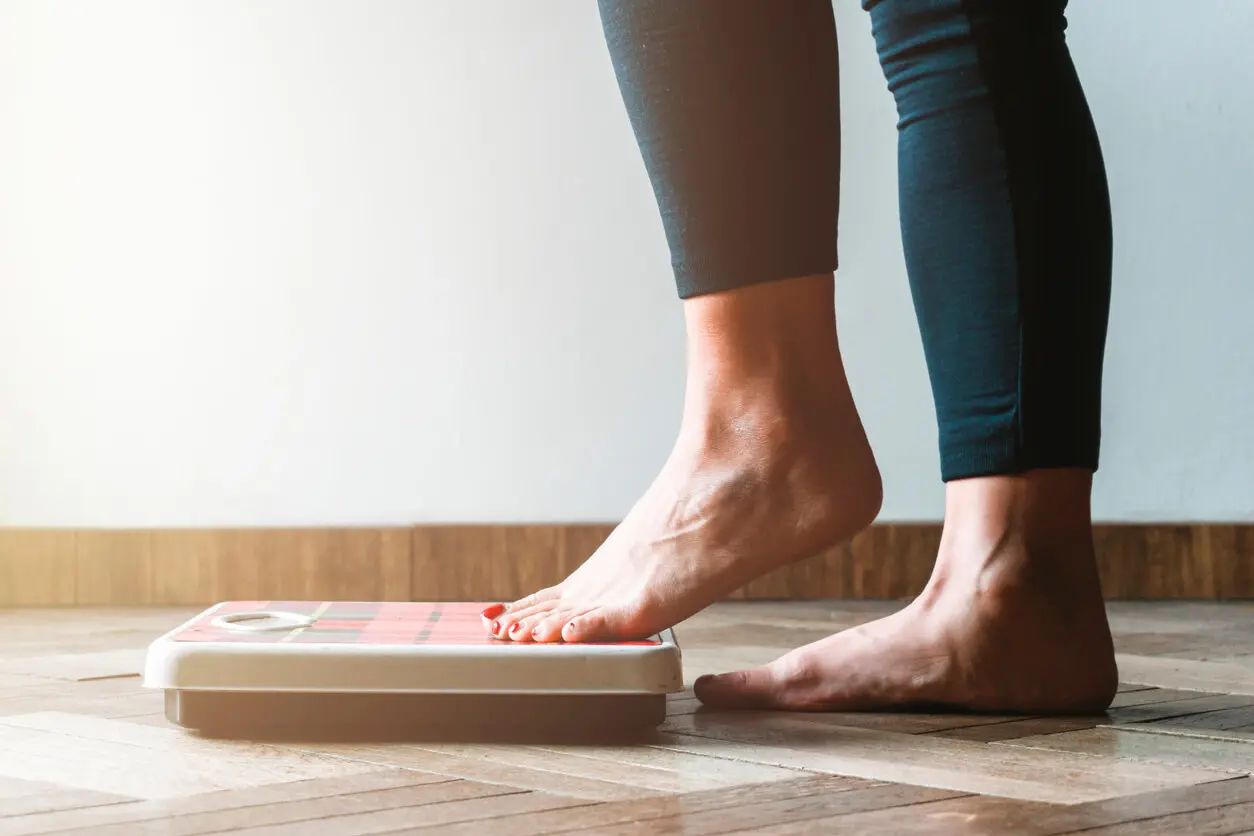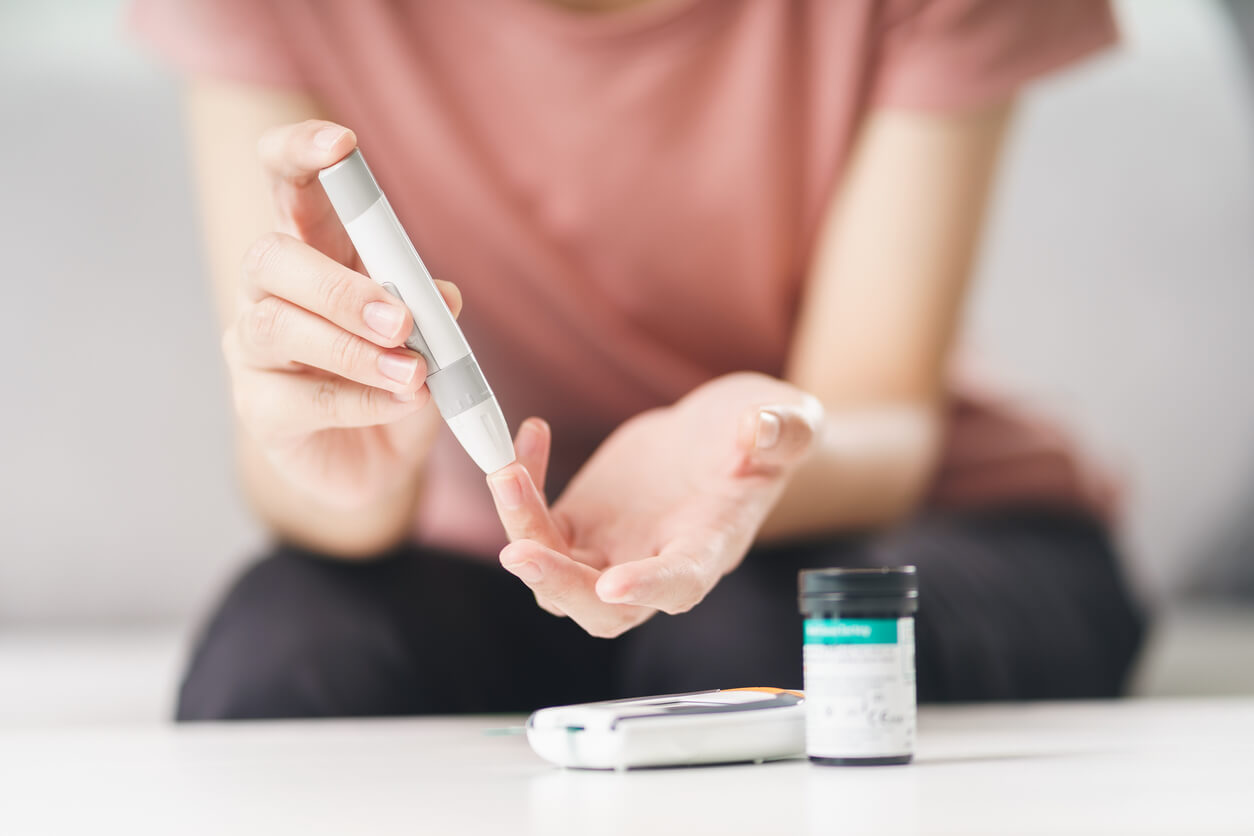9 Diabetes Drugs for Weight Loss
Key takeaways
- Some diabetes drugs lead to significant weight loss, while others’ weight loss effects are minimal
- Mounjaro (tirzepatide) is the diabetes drug that leads to the most weight loss, followed by Ozempic (semaglutide), Rybelsus (oral semaglutide), and Victoza (liraglutide)
- There are other medications that are specifically approved for weight loss, such as Wegovy, Zepbound and Saxenda
There are a wide range of medications that can help treat type 2 diabetes. However, several types of diabetes medications, like Ozempic, Mounjaro and more, can also cause weight loss as a side effect.
So how do diabetes drugs help patients lose weight? Are these drugs FDA-approved as weight management aids? And who should take these drugs? This article will provide a broad look at diabetes drugs that cause weight loss. We’ll investigate how these drugs work, their possible side effects, and who they may be right for.
How do diabetes drugs help with weight loss?
Healthcare providers prescribe diabetes drugs to regulate blood glucose (blood sugar) levels in patients with type 2 diabetes. These drugs have also been shown to lead to weight loss in individuals with obesity or excess body weight.
Diabetes drugs, specifically GLP-1 receptor agonists and SGLT-2 inhibitors, work through different mechanisms to help promote weight loss:
GLP-1 receptor agonists cause weight loss by:
- Lowering blood sugar by encouraging the pancreas to release insulin
- Reducing your overall appetite
- Slowing down the emptying of the stomach (making you feel fuller for longer)
SGLT-2 inhibitors cause weight loss by:
- Releasing excess blood sugar through the urine
Diabetes drugs are not prescribed alone. Your provider will also prescribe healthy lifestyle changes to be used with the medication. These habits help keep blood sugar levels stable and make the medication more effective. They can also help with weight loss.
Healthy lifestyle changes used with diabetes drugs include:
- A healthy diet: Your provider will recommend a diet rich in vegetables, fruits, whole grains, and lean proteins. They may also recommend cutting your calorie intake and avoiding high-fat, sugary, and overly processed foods.
- More exercise: Your provider will recommend an appropriate exercise program for you and your fitness level.
How much weight can I lose with diabetes drugs?
Patients on Mounjaro (tirzepatide) lost the most weight and faster, reducing body weight by 15% after one year. Ozempic (semaglutide) patients lost 8% after one year. Victoza (liraglutide) patients lost around 2% to 6% of their body weight after a year. Other diabetes drugs such as Trulicity (dulaglutide), Glucophage (metformin), and Rybelsus (semaglutide) cause weight loss between around 1% to 5%.
What diabetes drugs help with weight loss?
Several diabetes drugs can cause weight loss as a side effect.
The nine diabetes drugs that can also cause weight loss are:
- Ozempic (contains the active ingredient semaglutide)
- Rybelsus (contains the active ingredient semaglutide)
- Victoza (contains the active ingredient liraglutide)
- Trulicity (contains the active ingredient dulaglutide)
- Mounjaro (contains the active ingredient tirzepatide)
- Canagliflozin (generic for Invokana)
- Empagliflozin (generic for Jardiance)
- Dapagliflozin (generic for Farxiga)
- Metformin (generic for Fortmeza and Glutmeza)
These nine drugs come in different forms (some are oral pills or tablets, while others are injected) and are taken at different intervals (some daily, some weekly). They are detailed below.
Injectable diabetes drugs
Mounjaro
Moujaro, made by Eli Lilly, contains the active ingredient tirzepatide. Tirzepatide belongs to a novel class of drugs called dual glucose-dependent insulinotropic polypeptide (GIP) and glucagon-like peptide-1 (GLP-1) receptor agonists.
Mounjaro is injected once a week. Clinical trials showed that Mounjaro helped patients lose, on average, 41 pounds in 72 weeks.
Mounjaro starts at $1,135/ 28-day supply without insurance.
Ozempic and other GLP-1 agonists
Glucagon-like peptide-1 (GLP-1) receptor agonists are perhaps the most famous class of diabetes shots (injections) used for weight loss. These drugs are primarily manufactured by Novo Nordisk and Eli Lilly.
GLP-1 diabetes drugs include:
- Ozempic (semaglutide)
- Victoza (liraglutide)
- Trulicity (dulaglutide)
Cost breakdown without insurance:
- Ozempic: $199 per month for first two months (new patients only), then $349 per month after through the NovoCare savings program
- Victoza: $581 per month
- Trulicity: $1,038 per month
GLP-1 receptor agonist injections are applied once a week. They are injected into the stomach, thigh, or upper arm. In addition to helping manage blood sugar levels, they have been shown to help patients lose more than 10-15 lbs in a little over a year (56 weeks).
GLP-1 agonists also help prevent cardiovascular complications such as:
- High blood pressure
- Heart attack
- Heart disease
Oral diabetes drugs (pills)
Rybelsus
Rybelsus is the first and only GLP-1 pill approved by the FDA. It contains semaglutide, which is the same active ingredient in Ozempic.
Rybelsus is taken every day. Rybelsus has been shown to help patients lose around 8 pounds in 6 months.
Rybelsus starts at $1029 per month without insurance.
Invokana and other SGLT-2 inhibitors
SGLT-2 inhibitors include:
- Canagliflozin (generic Invokana)
- Empagliflozin (generic Jardiance)
- Dapagliflozin (generic Farxiga)
Cost breakdown without insurance:
- Invokana: $639/ 30-day supply
- Jardiance: $652.99/ 30-day supply
- Farxiga: $622.61/ 30-day supply
SGLT-2 inhibitors are available as pills that are taken every day.
SGLT-2 inhibitors have been shown to help patients lose 3-5 pounds in 6 months.
Metformin
Metformin is available in its generic form or under the brand names Glucophage and Glumetza.
Metformin is usually taken once a day with food. It has been shown to help patients lose over 12 pounds in 6 months.
Metformin starts at $11 for a 30-day supply.
Do diabetes drugs cause side effects?
The drugs listed above have been approved by the U.S. Food and Drug Administration (FDA). Their benefits generally outweigh their risks of side effects.
Common side effects of these drugs include:
- Diarrhea
- Constipation
- Stomach pain
- Low blood sugar
- Low blood sugar
Certain GLP-1 drugs (Ozempic, Rybelsus, Victoza) can increase your risk of developing certain medical conditions. These drugs should be avoided if you have a history of:
- Gallbladder problems
- Pancreatitis
- Kidney disease
- Liver disease
- Personal or family history of medullary thyroid carcinoma (MTC) (thyroid cancer)
- Multiple endocrine neoplasia syndrome type 2 (MEN2)
- Diabetic retinopathy (eye problems)
- High cholesterol or triglyceride levels
- Any digestive disorders
Talk to your healthcare provider about your medical history before starting treatment with any diabetes drug.
Who should take a diabetes drug for weight loss?
None of the drugs detailed in this article have been FDA-approved for weight loss. Their use as a weight management aid is off-label. "Off-label" means a doctor uses a medication to treat a condition or symptom for which it was not explicitly designed or officially approved.
Diabetes drugs are usually prescribed to patients who:
- Have a body mass index over 30 (obesity)
- Have overweight (a BMI over 25) with type 2 diabetes
The decision to prescribe a diabetes drug for weight loss is at the discretion of the prescribing provider. Diabetes drugs aren’t suitable for everyone. If you are curious about these treatment options but do not have type 2 diabetes, ask your provider about alternatives to diabetes drugs.
How long can you stay on these drugs for weight loss?
There is no specific amount of time or weight loss that determines how long you can take these drugs for weight loss. If the drugs are working and you aren’t experiencing side effects, your provider may recommend that you keep using them for the treatment of obesity.
Alternatives to diabetes drugs for weight loss
There are currently several GLP-1 medications that have the same active ingredients as diabetes drugs like Mounjaro, Ozempic, Rybelsus and Victoza but are specifically approved as weight loss drugs. These medications are as follows:
Wegovy: Wegovy comes in two forms: a once-weekly injection and a once-daily oral tablet. It also has a higher dose of semaglutide than Ozempic, which can lead to greater weight loss. The maximum Ozempic dose is 2 mg, while the maximum Wegovy injection dose is 2.4 mg, and the maximum Wegovy pill dose is 25 mg.
Saxenda: Saxenda is injected daily. Saxenda is a higher-dose version of Victoza. The maintenance dosage of Victoza is 1.8 mg, whereas the maintenance dose of Saxenda is 3 mg.
Zepbound: Zepbound contains the same active ingredient as Mounjaro but is specifically approved as a treatment for obesity. Ask your provider about this medication and its availability.
These brand medications have been shown to lead to more weight loss but may increase your risk of side effects. Specifically, higher doses of semaglutide are linked to a greater risk of gastrointestinal (GI) side effects.
How Sesame can help
Sesame offers an affordable and comprehensive online weight loss program to help you get started on your weight loss journey. Success by Sesame is a month-to-month subscription that includes a video consultation with a weight loss doctor or specialist of your choice, access to prescriptions for weight loss medication if appropriate, unlimited messaging with your provider, ongoing support, and more.
Maintaining a healthy weight can lead to significant health benefits, including a lower risk of heart disease, improved mobility, better sleep, and enhanced overall well-being. Get started on your weight loss journey today. Note that all prescriptions are at the discretion of your healthcare provider.








